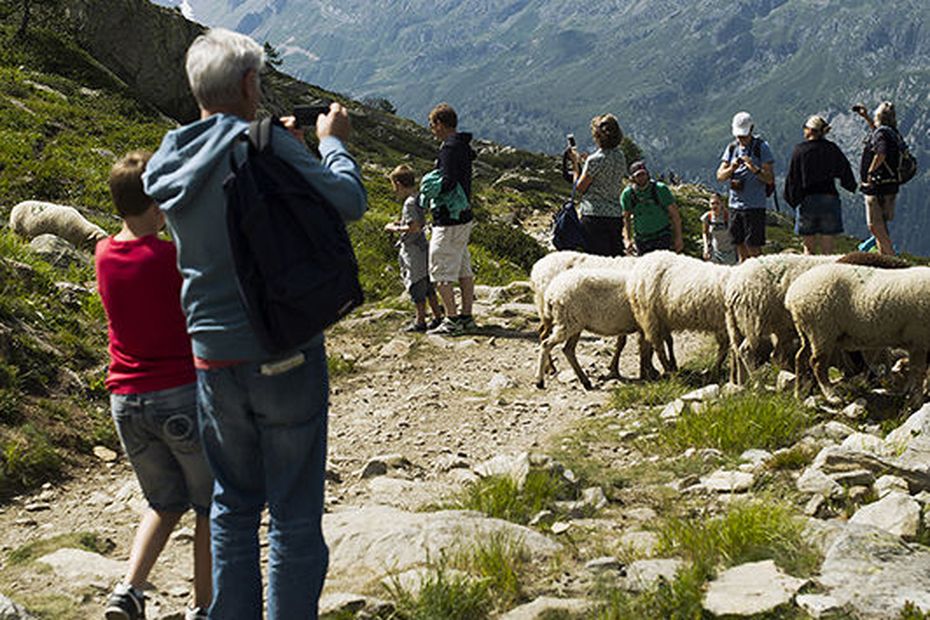In the French, Italian or Swiss Alps, the situation is the same: it is more difficult to recruit shepherds every year. The Covid years have further amplified the disaffection for the professions of pastoralism. To alleviate this vocations crisis, the mountain pasture farmers of the three countries of the Alpine arc have just created an employment exchange for shepherds.
“Can you imagine the rapid overgrowth that the disappearance of herds could cause on the thousand mountain pastures occupied in the summer?”. From his Haute-Savoie office at the Société d’économie alpestre (SEA74), Antoine Rouillon does not take lightly the difficulties that weigh on the summer recruitment of shepherds.
“It is not just a situational phenomenon that we are facinghe continues. The Covid has certainly not helped matters, but for a few years now we have gone from a recruitment system that was done more in the family sphere of shepherds or owners of herds, to a kind of vocations crisis..”
In the world of pastoralism, no one is unaware of the nature of certain blockages which act as foils for candidate shepherds. The isolation at altitude, the accommodation conditions, sometimes modest or shared, have already scared away many potential shepherds and employees of altitude dairies or farm cheese-making workshops.
“We are really having trouble recruiting and we are seriously asking ourselves the question of finding solutions to these brakes by for example pushing the owners to improve housing conditions or to raise the amount of remuneration. Especially since with the increase in predation by wolves, the need to keep the herds well becomes a question of survival”, explains Antoine Rouillon.
“The great fear of this summer in the mountain pastures risks being that of the shepherd who breaks his ankle”, adds Clément Teppaz, his counterpart at the SEA in Savoie. An accident which would be followed, on many Savoy mountain pastures, by a headache to find the replacement for the unfortunate shepherd.
Among the range of solutions sought by the profession, there is of course training. About fifteen new shepherds have, this year again, left the three training centers of La Motte-Servolex (Savoie), La Côte-Saint-André (Isère) and Die (Drôme).
There is the “Berger-Cocher d’alpage” training course, for example, 810 hours in total, including 8 weeks in the alpine pastures. Among the requirements: “feeding and monitoring the health of the herd”but also “managing your life in the mountain pastures”.
–
And the success rate for finding a job at the end of the training says a lot about the labor needs of the sector, since it is 100%.
“We are not yet reduced, like our neighbors in the Aosta Valley, to seeking labor in the Maghrebreassures Antoine Rouillon. But it is clear that we must step up our efforts to recruit more and more outside the agricultural world”.
And even outside the borders for its Italian counterparts in the Aosta Valley. Asked by the daily The print on the same difficulties in recruiting, the president of the Italian agricultural union Coldiretti no longer hesitates to sound the alarm for this summer. “If the Italian Ministry of the Interior does not quickly grant authorizations to enter the territory for the quota of 42,000 workers from the Maghreb planned for the agricultural sector, this risks putting many breeders in extreme difficulty”said Alessio Nicoletta, the president of the Val d’Aosta branch of Coldiretti.
This is all the more urgent since at the Italian level, requests for authorizations to bring in 100,000 workers from outside the European Union (EU) have been made for the entire agricultural sector. “The presence of foreign workers has become structural for us: nearly 30% of working days in the agricultural sector are carried out by foreigners”, according to Alessio Nicoletta. They would even have become “indispensable” life in the mountain pastures in the Aosta Valley, where around sixty nationals from the Maghreb countries are still expected for this summer.
If the Italians approach Africa, the Swiss would rather recruit their alpine farmers in Romania. But the simplest thing, outside of an emergency, is still to seek to create new vocations around you.
Hence the creation this month of a “shepherds job grant“, a kind of cross-border pastoral “Pôle Emploi”. Its particularity: it brings together job offers for all potential shepherds, interested in working in the mountain pastures of the French regions (Aura and Paca), Italian (Aosta Valley) , but also the Swiss cantons of Valais, Vaud and Fribourg.
–


